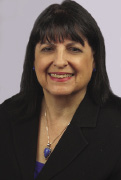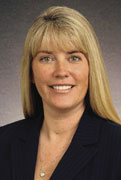June 2018 • Volume 106 • Number 6 • Page 20
Thank you for viewing this Illinois Bar Journal article. Please join the ISBA to access all of our IBJ articles and archives.
Legal Technology
Sleuthing on the ‘Net
Social media and the internet generally hold a trove of mission-critical information for lawyers about adversaries, businesses, and more - and most of it is free. Do you know how to find it?

Twenty-five years ago, an attorney who wanted to dig for information about a litigant, witness, or juror had limited options. They included a search of public records like court proceedings, driving and other police records, marriage and divorce documents, and property ownership papers. Perhaps they could discover relevant information in old newspaper or magazine articles. To find out more, they needed to hire private investigators.
But investigative avenues have opened up considerably in the past quarter-century thanks to the internet and, more recently, social media. As one example of many, attorneys representing workers' compensation defendants often no longer need private investigators, says legal technologist Mark Rosch. Rosch is vice president of Internet for Lawyers and co-author of Internet Legal Research on a Budget with Carole Levitt, president of that same organization, which teaches attorneys how to use these resources and occasionally does consulting work.
"If [claimants say] they're unable to engage in certain activities, 20 years ago, if you wanted to prove it, you would hire an investigator to follow them in public and take pictures," he says. "Now, people provide that surveillance on themselves. They provide pictures [on social media] of themselves doing things they said they couldn't do."
In a similar vein, half of all divorce cases used evidence obtained from social media, according to a study conducted three years ago by the American Association of Matrimonial Lawyers. "Generally, either the spouse finds evidence of a second profile the spouse is maintaining, or [the spouse under investigation] inadvertently posts something incriminating in their primary profile," he says. "When we teach attorneys about doing research, we help them search for profiles where the opposing spouse might be using a pseudonym, or an online nickname, to be able to identify profiles on online dating sites or adult content sites."
Samples of sleuthing
Arizona-based private investigator Michèle Stuart, who often works with attorneys and estimates she has handled 15,000 to 20,000 cases overall, remembers a slip-and-fall insurance case in the parking lot of a business. The business was just about to pay out based on what seemed like ironclad testimony from a witness, who happened to be a nurse.
During depositions, the plaintiff and witness testified that the nurse happened to be walking by and acted as a Good Samaritan. But a search of Facebook posts revealed otherwise, says Stuart, who will explain how attorneys can use social media and online sleuthing at the ISBA Solo and Small Firm Practice Institute in Naperville on June 1. (see https://bit.ly2INunbk.)
"I was able to take the victim, No. 1, and the nurse, No. 2, and do a search pattern for mutual connections, 'likes', and 'tags,'" she says. "Here are two individuals, under deposition and oath, stating that they never knew each other. I was able to identify in 10 seconds that they were former sorority sisters based on someone else's Facebook page where they both were 'tagged' in photos."
Stuart recalls another case in which she assisted a defense attorney representing a man in his early 20s who had been accused of a rape that he insisted he had not committed. She went onto the plaintiff's Twitter account and found a post in which the woman said, in essence, "I did it [made the accusation] because I didn't want my boyfriend to know I had sex with this other guy."
"I was able to screen-capture it before she deleted it, thank God," she says. "Obviously, it saved the day."
Internet for Lawyers was once called upon to investigate a person in Southern California holding himself out as an investment adviser. "At first glance, this seemed like someone who it would be OK to be in business with," Rosch says. "Then we went to public library [newspaper] databases and searched a regional database that included nearby states. There, we found a number of articles about his history as an investment adviser in Phoenix. There was less-than-positive information about his business history in those articles, which then led us to the SEC website, where we found information about sanctions against him."
Rosch also recalled consulting an attorney representing a client who had sued another attorney for legal malpractice. The original attorney had performed background research on a moviemaker seeking an investment from the client. The original attorney gave the client a green light and the client invested $250,000 in the moviemaker. Although the movie in question was never made, the client never got his money back. The client did some investigating of his own and found that the moviemaker had previously declared bankruptcy and been sued for fraud more than a dozen times. The client then wondered what research the original attorney had done and sued.

"The second lawyer wanted us to be a consultant to show the jury how much you can find online, if you do your due diligence," Levitt says. "We found all kinds of articles about [the moviemaker] across the U.S. and internationally. We did docket research, ran him through a paid investigative database, and found blogs about him. We found quite a bit of information that easily would have told us not to invest the $250,000." The case underscores the importance of knowing how much game-changing information is readily available - and knowing how to find it.
Family law, p.i., and much more
JAG Investigations trains law enforcement and military intelligence in addition to consulting with attorneys, and the company's work has run the gamut of insurance fraud, personal injury, corporate intelligence, and more, Stuart says.
For example, companies might want to learn about a potential hire for a key post, Stuart says, "especially if they're going to have access to proprietary information. We might have an instance where an employee is angry at work and may be threatening somebody, or stalking them. There's also, at the dissolution of employment, the threat that an individual is going to come back and do harm."
Internet for Lawyers has worked with, or is aware of, attorneys who do online sleuthing in practice areas ranging from family law to personal injury to criminal law, Levitt says. "Almost every practice area can use social media evidence," she says. That can include intellectual property piracy, business litigation, and business advice in general, Rosch says.
"Our goal primarily is to teach lawyers why it's important to do this and how to do it themselves," he says. "The information is out there. How do you search for it effectively so you're not wasting time?"
Searching social media
JAG focuses on the four most widely used social media platforms in the U.S.: Facebook, Instagram, Twitter, and YouTube (it notes Snapchat also merits close surveillance). "You're trying to identify movement or location of an individual, and habits of the individual. You might have somebody making a threat, and you're looking to see if they're posting anything about weapons, or hatred of the government or a business."
In addition to photos and other information from posts, Stuart notes that lawyers can recover valuable information from the metadata embedded in those items, such as the time, date, geolocation, and device ID. Attorneys also should be aware of applications that help track social media posts, such as tweeting, and allow you to "watch" people's Twitter activity in a given location. "You get their user name, find out where they live and work, their driving patterns, things like that," she says.

Twitter can be very useful in jury selection, Rosch notes, even just to get general background information about people. "If you're trying to find out their interests, whether they're liberal or conservative, where they go for recreation - those are the kinds of things people post on Twitter all the time," he says. "People tend to over-share."
That over-sharing sometimes includes the facts of a case in process, which jury members are, of course, advised not to discuss with anyone. "They don't understand that 'don't discuss' also means don't 'tweet' or post on Facebook," Rosch says. "We suggest to attorneys that if they have identified a juror's publicly available social profile, it's important to continue to monitor that during trial. If they do find that the seated juror has posted something they shouldn't, they need to advise the judge immediately. Every state has different rules about attorneys' duty to advise."
LinkedIn can be useful in certain types of cases, such as business litigation, in which a litigant or witness would typically have a professional profile, Levitt says. The networking site would be less useful if, say, you're prosecuting a drug dealer, she says.
Facebook has become somewhat less useful as a tool in the wake of the Cambridge Analytica revelations because the social media provider has shut down certain searches that were valuable to attorneys, such as using telephone numbers or e-mails to find a profile, Rosch says. But a third-party site called searchisback.com does re-enable some of those same functions as long as you're logged into your own Facebook profile.
"It will search through those public profiles and bring back a list [of possible matches]," he says. "The big question mark is: How long will that continue to work? As Facebook starts to take away search tools (arguably for good reasons), there's a good chance that such features also will disappear."
An attorney might use searchisback.com to look for a witness to an accident but they only have a first name and an employer, Levitt says. "If you're looking for someone named Kirby who works at John Deere, you can click the 'search' button and get results on who meets that criteria," she says. "Then you can scroll through the results, see if there's a picture, and whether you can recognize the person and contact them."
Beyond Google: Other search platforms

Stuart suggests that attorneys also can seek "actionable intelligence" from sources like TruePeopleSearch.com, which "will identify [a person's] home address, phone, e-mail, address history, employment information, phone numbers, relatives, and associates." Those additional identifiers then can be used in search engines like Google.
"If you go into Google first and you haven't found anything, you've wasted your time," she says. "But if we can create actionable intelligence, and then go into Google, now we have numerous patterns. It's called search criteria manipulation. I now have a catalog of information - family members, associates. I can have up to 20, 30 new search patterns."
Another tool for attorneys is the docket search, Levitt says. In addition to the for-fee versions offered by Westlaw and Lexis (called PeopleMap and Accurint, respectively) attorneys tend to think about the federal judiciary's free PACER site, but case documents in that tool are not fully searchable, she says. However, another free tool created by the Free Law Project called RECAP (PACER spelled backward) is stocked with millions of fully searchable case documents.
"You can find out what kinds of cases [your research subject has] been involved with. It could be a bankruptcy, which means you don't want to go into business with them. It could be fraud," she says. "[Recap] only has what people have donated from Pacer. [It] doesn't have everything." But it has built a significant trove, she says.
Another option is a database called TLOxp, which charges $25 per month - less than Lexis or Westlaw - but requires users to be preapproved, Levitt says. "They send someone to your office to vet you."
But winning approval is worth the effort, she says. "You can get huge reports on people - basically a dossier. It could be a couple pages, it could be 20 to 30 pages with possible names of relatives and associates, neighbors, real estate records, mortgages, criminal records, and bankruptcies. It puts everything in one place."
"Those kinds of services are also really good for finding missing people, such as missing witnesses or missing heirs," Rosch adds. "You can not only find old addresses and phone numbers," you can search by them, he says.
Accessing locked-down information
People who have been criminally indicted or otherwise have reason to fear legal action sometimes lock down their social media and other online accounts, Stuart says. Building additional search patterns can help attorneys navigate around those roadblocks.
"Stop concentrating on the source, and look at the people rotating around that individual," she says. "If I know I'm being watched, I'm not going to put anything out there." But the people around the person you're searching - family, friends, business associates - may very well be posting about them.
Attorneys can find historical information previously posted online and since removed using the "Wayback Machine" at archive.org, which has kept copies of websites as they existed dating back to 1991, Stuart says. "You can interact with old versions of websites as if they were still active today," she says. "If a website went down 10 years ago, I can still derive intelligence from it."
Internet for Lawyers teaches attorneys how to use a Google function called "Reverse Image Search." Through it, a researcher can upload a photo and Google will find any matches online or on social media, Levitt says. It's a popular function among matrimonial attorneys.
"They can upload the picture and trace where the husband might be using that picture online," she says. "It could be on some 'adult' dating service.… Or they could be doing something illegal while they're fighting about custody and visitation. A lot of people use the same photo over and over again. You love that photo from 10 years ago."
The photo-matching function helps track people using sites they don't want it known they're using, Rosch adds. "Even if they're using a throwaway e-mail, or a pseudonym not connected to them, the Google Reverse Image Search does a pretty good job of finding the same photo."
Courts have ruled that introducing evidence found through such methods does not violate the privacy or confidentiality of litigants and others, Stuart says. "There's no reasonable expectation of privacy for material posted on Facebook," she says. "Nothing is considered private, even under areas intentionally segregated as private."
People whom attorneys want to investigate have often not been particularly careful, Stuart says, recalling one plaintiff who claimed to be completely bedridden and then was discovered in photos on someone else's Facebook page skiing down a mountain. "Drug dealers, pimps, other people who utilize these social platforms - you'd think they would be [careful], but they're not," she says.
Even your subject's own website shouldn't be discounted as a resource, though it's likely to be biased, Rosch says. "They can be great sources of claims about the company or individual that you may be able to use against them," he says. "Product liability claims, or other claims made in writing - you [now] have evidence the client or company made those claims, even if they say they did not. If they subsequently change the content, you can get a screenshot, or use a service like archive.org and find old versions of the pages."
Going old-school
If you don't find enough information on social media and the internet, don't discount the old-school, pre-internet methods. Stuart says old-school public-records searches can still yield valuable information. "A lot of people don't realize how wonderful public records can be," she says. "You get everything."
Newspaper and magazine databases available at virtually any public library are also great resources, Rosch says, "particularly if you're doing due diligence. They're good for business lawyers and people who are investigating fraud.… Just about every library offers some level of very expensive database resources for free. And the vast majority are available remotely by visiting the library's website. You just need a library card to log in."

Ed Finkel is an Evanston-based freelance writer.
edfinkel@earthlink.net
The ethics of social media investigation - find out more
Lawyers' use of social media continues to pose ethical risks, no more so than in the realm of social media investigations. What are the ethical implications of, say, "friending" adversaries to get access to information they've posted to their Facebook accounts? A number of scholars and practitioners have explored the issues, including the following.
- Carole A. Levitt & Judy K. Davis, Legal Ethics Opinions Related to Attorneys' Use of Social Media Profiles for Investigative and Background Research. This collection of state bar ethics opinions addressing social media investigations is on the Internet for Lawyers website at https://bit.ly/2raLKJg.
- Jessica Weltge & Myra McKenzie-Harris, The Minefield of Social Media and Legal Ethics: How to Provide Competent Representation and Avoid the Pitfalls of Modern Technology (see especially the section on social media and litigation). This paper was delivered at the ABA Section of Labor and Employment Law's Ethics & Professional Responsibility Committee Midwinter Meeting on March 24, 2017, and is available at https://bit.ly/2HJc6Ze.

